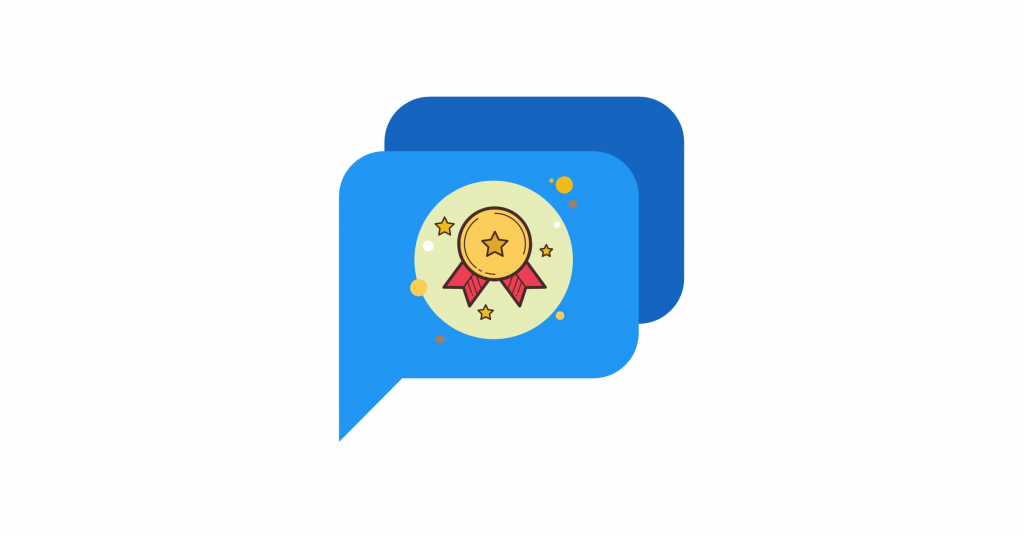Freshchat has become a popular choice for businesses wanting live chat with AI capabilities. It brings together customer conversations from web, mobile, and social channels into one unified inbox, powered by their "Freddy" AI chatbot that handles support around the clock.
The pricing starts reasonable enough. There's a free plan for up to 10 agents, and paid tiers kick off at around $15-$19 per agent monthly (when you commit annually). Advanced features can push that to $79 per agent per month.
But Freshchat isn't the perfect fit for everyone.
Maybe the per-agent pricing adds up too quickly as your team grows. Perhaps you're frustrated by missing features like built-in voice or SMS support (you'd need separate Freshworks products for those). Or maybe you just want something that works better with your existing workflow.
Whatever your reason, you're in good company. Plenty of businesses are exploring alternatives to Freshchat in 2025, looking for solutions that better match their needs, budgets, or technical requirements.
This guide walks through 10 solid Freshchat alternatives, covering everything from budget-friendly options to enterprise-grade platforms. We'll look at what makes each one different, who they're best for, and what you should know before making the switch.
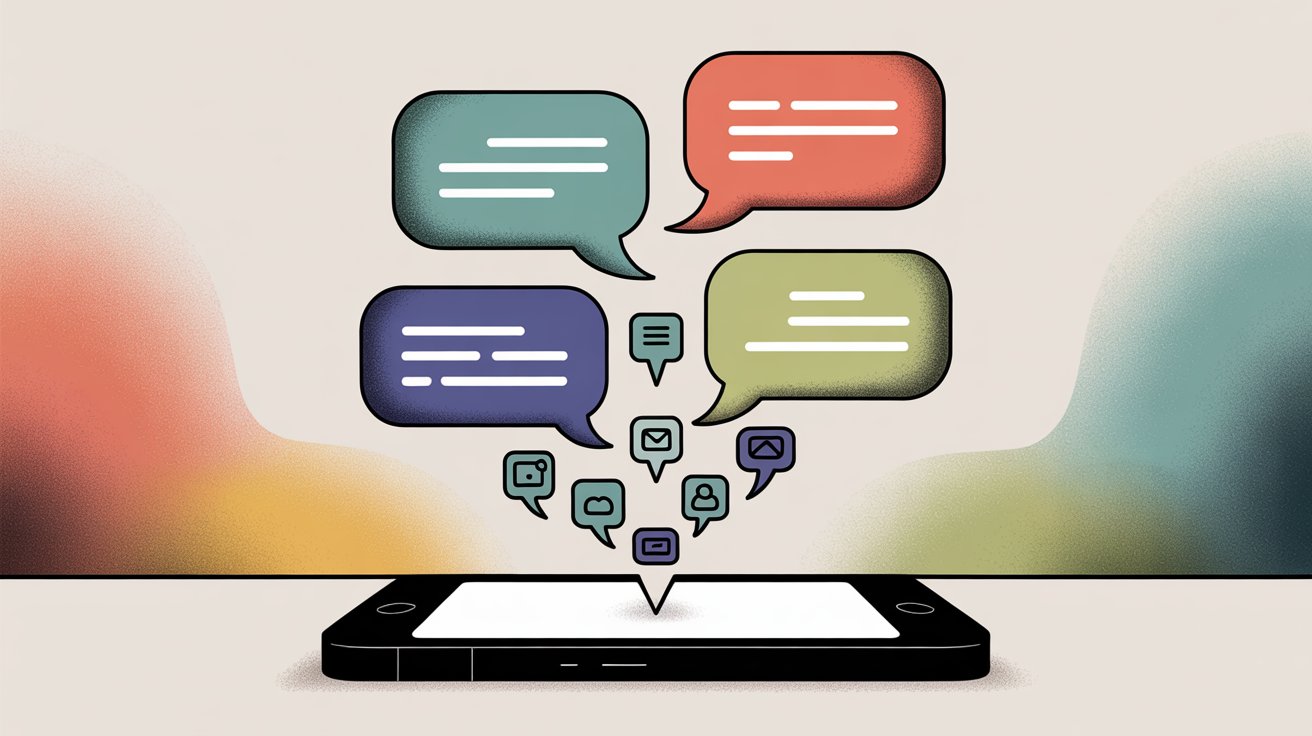
Why Do Businesses Look for Freshchat Alternatives?
Before we jump into alternatives, it helps to understand why teams look for something different in the first place.
The pricing structure catches people off guard. Freshchat charges per support agent, which sounds simple until you realize how fast it scales. Add a few more team members, upgrade to get the features you actually need, and suddenly that "affordable" chat solution is eating a significant chunk of your support budget. Research shows many businesses cite this as their top frustration.
Feature gaps create headaches. Out of the box, Freshchat doesn't include voice calling or SMS text support. Want those? You'll need to add other Freshworks products. For some businesses, this fragmented approach means juggling multiple tools when they really just want one platform that handles everything.
Integration preferences matter more than you'd think. Freshchat works well if you're all-in on the Freshworks ecosystem. But what if your agents practically live in Slack or Microsoft Teams? What if your CRM is something other than Freshworks? Suddenly those integration limitations become daily friction points.
Different use cases need different tools. An e-commerce store with high chat volume has different needs than a B2B SaaS company doing consultative sales. A small nonprofit has different budget constraints than a mid-sized tech company. Freshchat tries to serve everyone, which means it's not optimized for anyone specifically.
The good news? The live chat market in 2025 is incredibly diverse. Whatever gaps you're experiencing with Freshchat, there's likely an alternative built specifically to solve that problem.
Let's look at your options.
Intercom vs Freshchat: Which AI-Powered Chat Platform Wins?
If you've researched Freshchat alternatives at all, you've probably run into Intercom. Industry analysis consistently lists Intercom (specifically its AI assistant "Fin") as a top Freshchat competitor.
Intercom takes a different approach than Freshchat. Instead of just being a support tool, it combines customer messaging, marketing automation, and product tours into one platform.

What Sets Intercom Apart
The AI capabilities are legitimately impressive. Intercom's Fin assistant isn't just answering basic FAQs. It can pull from multiple knowledge sources, understand context, and handle genuinely complex requests. Need to book a meeting? Fin can do it. Process a refund through your payment system? Fin handles that too. Market data suggests Fin is one of the highest-performing support bots available right now.
This goes beyond what Freshchat's Freddy AI typically does. While Freddy handles routine queries well, Fin's ability to integrate with third-party systems and execute actions (not just provide information) puts it in a different category.
Proactive engagement is built into the core product. Intercom doesn't wait for customers to reach out. You can set up targeted messages based on user behavior. Someone hits your pricing page three times in a week? Pop up a custom offer. User completes onboarding but hasn't used a key feature? Trigger a Product Tour. This makes Intercom powerful not just for support, but for onboarding and marketing.
The unified approach to customer data helps teams work smarter. Every chat comes with full customer context: what pages they've visited, what features they use, previous conversations, their segment. Agents aren't flying blind. Reviews consistently mention this customer segmentation and automation depth as superior to Freshchat.
The Cost Reality
Intercom is expensive. There's no dancing around it.
Plans start around $74/month for the basic Starter package, and that's before you add the features that make Intercom actually worthwhile. Many of their powerful capabilities live in higher tiers or are sold as add-ons.
Industry reviewers note that Intercom often costs more than Freshchat on a per-seat basis and can be slower to show ROI. But for companies that fully use its capabilities (particularly SaaS businesses focused on product-led growth), the investment pays off.
When Intercom Makes Sense
Choose Intercom if:
-
You need cutting-edge AI automation
-
You have budget to invest in a premium solution
-
You want proactive engagement tools for marketing and onboarding in addition to support
-
You're a product company that cares deeply about the customer journey
Don't choose Intercom if:
-
You're primarily looking for basic live chat
-
You're cost-sensitive
-
You just need to answer support questions without all the bells and whistles
Zendesk vs Freshchat: Best All-in-One Support Platform
When people talk about customer service platforms, Zendesk comes up constantly as one of the best all-around alternatives to Freshchat. It's been around longer than most competitors and has evolved into a comprehensive support suite.
The key difference? Zendesk isn't just a live chat tool. It's a full help desk platform where live chat is one piece of a much larger puzzle.
What You Get with Zendesk
True omnichannel support that actually works. Zendesk handles email, phone, web chat, social media (Facebook, Twitter, WhatsApp), SMS, and more. Everything flows into one unified system where agents see complete customer history across every channel. Had an email conversation last week? That context appears when the same customer opens a chat today.
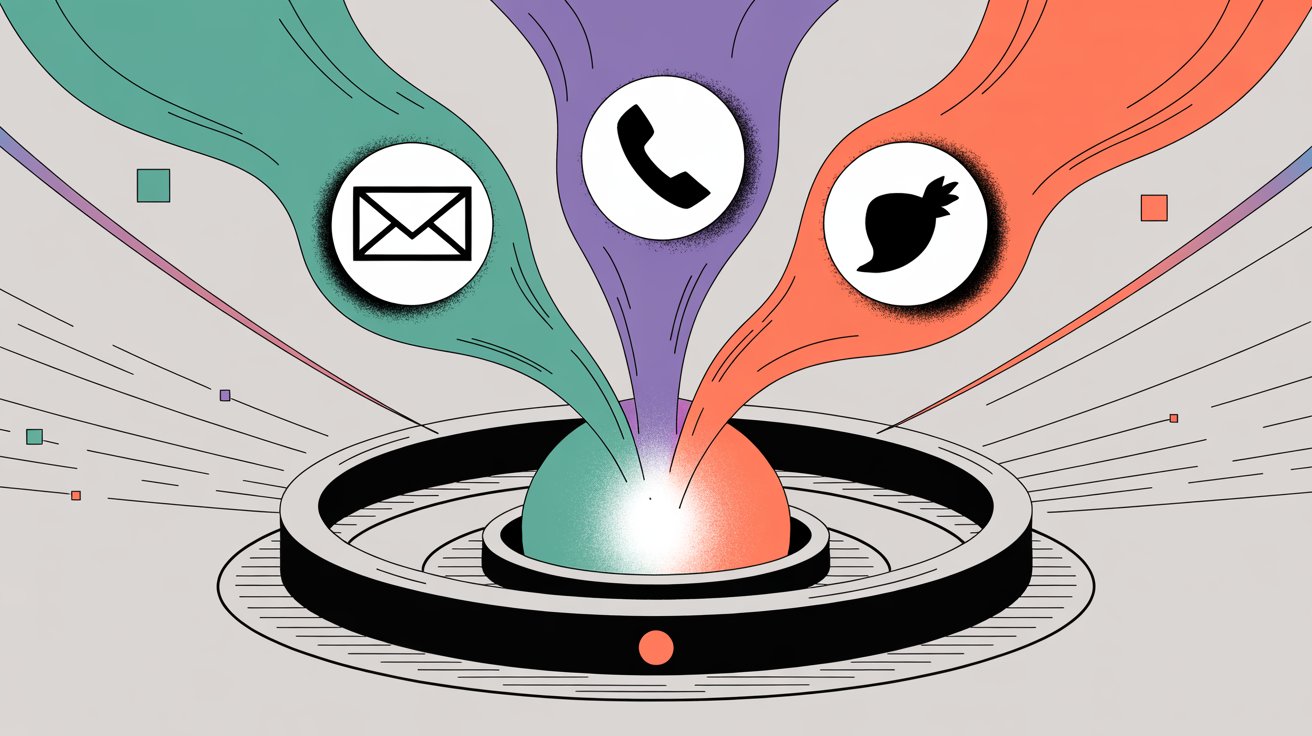
This is broader than Freshchat's approach. While Freshchat unifies messaging channels, Zendesk treats everything (including traditional ticketing) as interconnected.
Deep CRM and helpdesk integration is the foundation. Because Zendesk started as a ticketing system, that integration is seamless. Agents see past tickets, order history, and customer data right alongside live chats. For support teams that handle both real-time chat and asynchronous email/ticket workflows, this unified context is invaluable.
The automation and AI capabilities are enterprise-grade. Zendesk has invested heavily in AI features like Answer Bot and Sunshine Conversations. Their enterprise AI tools rival or exceed Freshchat's in certain areas, particularly around integrated knowledge management and complex routing rules.
The Pricing Structure
Zendesk Suite generally costs more than Freshchat for similar agent counts. Here's how the plans break down:
| Plan | Price/Agent/Month | Best For |
|---|---|---|
| Suite Team | $49 | Small teams needing basics |
| Suite Growth | $79 | Growing support operations |
| Suite Professional | $99 | Mid-size teams with complex needs |
| Suite Enterprise | $150 | Large organizations, advanced features |
The pricing can get confusing quickly. Many features are locked to higher tiers, which frustrates some users. But remember you're getting more than just chat: a full ticketing system, knowledge base, phone support capabilities, and robust reporting all come included.
When Zendesk Makes Sense
Choose Zendesk if:
-
You need an enterprise-grade support suite that handles multiple channels beyond just live chat
-
You're a mid-size to large support team that wants one platform for all customer interactions
-
You need serious ticketing capabilities alongside chat
Don't choose Zendesk if:
-
You're a small business that just needs simple live chat
-
The pricing makes you uncomfortable
-
You'll be paying for features you might not use
-
The learning curve is steeper than simpler tools
⭐ Social Intents: Best Freshchat Alternative for Slack and Microsoft Teams
Here's where things get interesting. While most chat tools require your agents to learn yet another interface, Social Intents takes a completely different approach: your team answers chats directly from the tools they already use every day.
How Social Intents Works Differently
Your team never leaves Slack or Microsoft Teams. When someone chats on your website, the message pops up in your chosen Slack channel or Teams team. Your agents reply right from Slack or Teams, just like they're responding to a colleague. No separate chat console. No switching between applications. No training on new software.
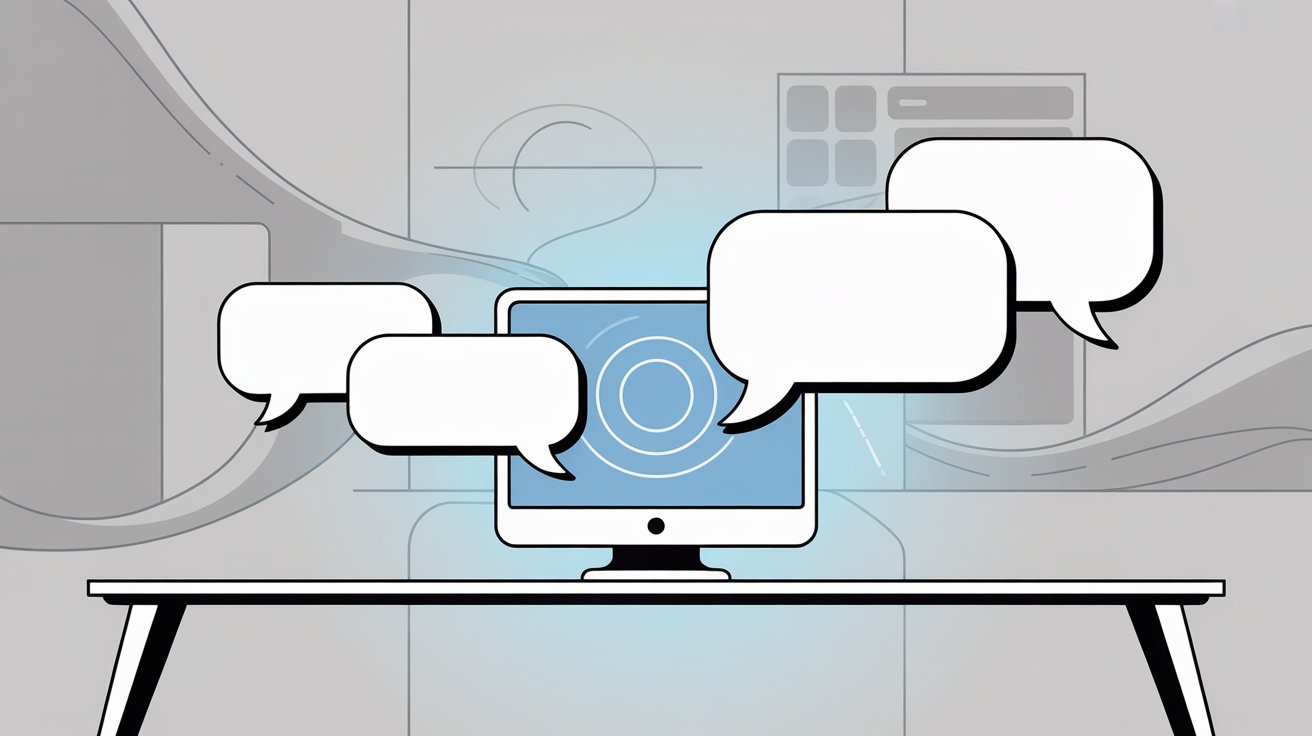
TechRadar's review called this approach "impressive" because it eliminates the platform-juggling that drives support teams crazy. For organizations that have standardized on Slack or Teams, this integration feels almost magical.
Social Intents also supports Google Chat, Zoom, and Webex. Plus there's a web console if your team prefers a browser-based inbox. The flexibility matters.
The pricing model flips the script. Instead of charging per agent, Social Intents prices based on monthly conversation volume and includes unlimited agents on every plan above the entry tier.
Let's break that down:
| Plan | Price (Annual) | Agents | Conversations/Month | Key Features |
|---|---|---|---|---|
| Starter | $39/month | 3 agents | 200 chats | ChatGPT integration, 10 trained URLs |
| Basic | $69/month | Unlimited | 1,000 chats | AI chatbot, 25 trained URLs |
| Pro | $99/month | Unlimited | 5,000 chats | Remove branding, 200 trained URLs |
| Business | $199/month | Unlimited | 10,000 chats | Real-time translation, 1,000 trained URLs |
Compare this to Freshchat: if you have 10 agents on the $19/month plan, you're paying roughly $190/month just for agent seats. With Social Intents, those same 10 agents (or 50 agents, or 5 agents) are covered under a flat rate.
AI chatbots and automation are included. Social Intents integrates with ChatGPT, Claude, and Google's Gemini AI models. You can train bots on your website content and FAQs, then set them to handle common questions before escalating to humans when needed. The handoff happens seamlessly in Slack or Teams.
You also get proactive chat triggers, canned responses, file sharing, and real-time chat routing to specific channels.
The Trade-offs
The conversation-based pricing is fantastic if you have a large team or fluctuating agent count. But high-volume sites need to watch those monthly chat limits. The Business plan's 10,000 chats/month might not be enough for extremely busy sites.
Social Intents is also a leaner solution. It focuses on doing live chat and AI chatbots extremely well rather than trying to be an all-in-one helpdesk. Some users note that widget customization options are more limited compared to larger platforms.
When Social Intents Makes Sense
Choose Social Intents if:
-
Your support team works in Slack, Microsoft Teams, Google Chat, Zoom, or Webex all day and you don't want to force them into a separate tool
-
You have many part-time agents or rotating team members (since you're not paying per head)
-
You're a small to mid-sized business looking for cost-effective live chat without disrupting existing workflows
Small and mid-sized businesses, especially those in e-commerce, find it's a cost-effective way to add professional live chat without disrupting existing workflows. The native integrations with Shopify, BigCommerce, Wix, and WordPress make setup quick.
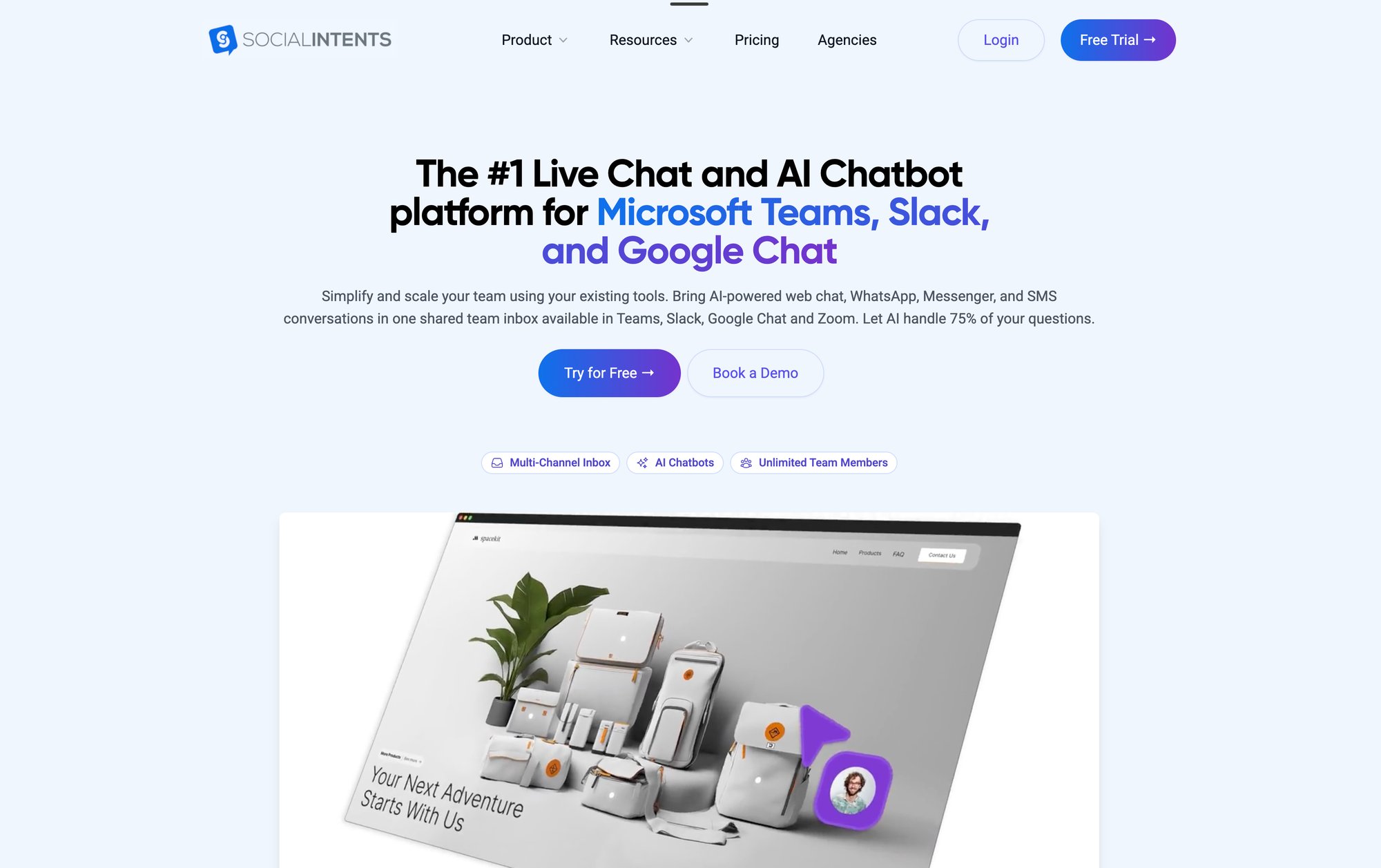
Tidio: Best Freshchat Alternative for E-commerce
Tidio has carved out a strong position among small businesses and online stores. It combines live chat, chatbots, and even email marketing features into one affordable platform.
Why E-commerce Teams Choose Tidio
Built with online stores in mind. Tidio offers plug-and-play integrations with Shopify, WooCommerce, BigCommerce, and other e-commerce platforms. Setup takes minutes. More importantly, it includes e-commerce-specific features like cart abandonment messages where bots automatically reach out if someone leaves items in their cart.

The chatbot builder is visual and beginner-friendly. You don't need to be technical to create chat flows. Tidio's bot can answer FAQs, collect leads, and hand off to humans when needed. Agents also get a real-time typing preview (they can see what visitors are typing before they hit send), which speeds up responses significantly.
Multi-channel management from one inbox. Tidio lets you manage Facebook Messenger and Instagram DMs alongside website chats, all from the same interface. For small teams managing multiple platforms, this consolidation saves time.
The Pricing Advantage
Tidio's free plan lets you test the basics with a small number of chats and basic bot flows. Perfect for trying before you buy.
Paid plans use conversation-based pricing:
-
Growth plan: Around $59/month for up to 2,000 conversations
-
Chatbots plan: Roughly $39/month if you need more AI capacity
No per-agent fees. Pricing scales mainly with chat volume and chatbot triggers. For small teams, this is dramatically cheaper than Freshchat at similar usage levels.
The Limitations
Tidio's reporting capabilities are fairly basic. If you need sophisticated analytics and performance tracking, you might find it lacking. It's also not built for enterprise scale. Large organizations might outgrow its feature set as they expand.
When Tidio Makes Sense
Choose Tidio if:
-
You run a small to mid-sized e-commerce business
-
You want easy, budget-friendly live chat with built-in chatbots that just work
-
You value clean interface, reliable mobile app, and live typing preview
Don't choose Tidio if:
-
You need enterprise-level reporting or deep customization
-
You're managing a massive support operation
-
Simplicity over complexity isn't your priority
Drift: Best Freshchat Alternative for Sales and Lead Generation
While Freshchat leans toward support, Drift focuses squarely on sales and marketing. It pioneered "conversational marketing" where chatbots and live chat work together to qualify leads, book meetings, and drive revenue.
What Makes Drift Different
Account-Based Marketing (ABM) is built into the core. Drift can identify high-value visitors from target accounts and route them straight to the right salesperson. VIP prospects get personalized messages. Regular visitors get standard flows. This targeting goes far beyond what support-focused tools like Freshchat offer.
Meeting scheduling happens automatically. Drift bots don't just chat. They can book meetings directly on your sales team's calendars by integrating with Google or Outlook. A prospect visits your pricing page? The bot can qualify them with a few questions, then offer available meeting times right in the chat. No back-and-forth emails.

Multimodal conversations close deals faster. Agents can seamlessly switch from chat to phone calls to Zoom meetings, all within the Drift platform. For high-touch B2B sales, this flexibility matters. Freshchat doesn't provide integrated voice or video calling.
The automation is designed to shorten sales cycles. Drift's playbooks guide visitors through conversations based on their responses. A bot might ask: "Looking for product info or pricing?" Then branch into different flows. It captures email, qualifies company size, and schedules demos without any human intervention.
The Investment Required
Drift operates at the higher end of the market. Pricing isn't published publicly (you need to request a quote). Plans typically run thousands per month for business tiers. This positions Drift for companies where one closed deal justifies the software cost.
If Freshchat's pricing concerned you, Drift's will likely be out of reach unless you have a dedicated sales technology budget.
When Drift Makes Sense
Choose Drift if:
-
Your primary goal is driving sales pipeline and revenue through website conversations
-
You're a B2B company that wants to capture and qualify web leads with conversational AI
-
You want to engage high-value visitors in real time
-
You need to integrate chat deeply into your sales process
Don't choose Drift for:
-
Pure support use cases (it's overkill for customer service)
-
Simple chat needs (the features and price make sense for sales teams, not support teams)
-
Quick implementation (setting up Drift effectively requires strategy work: designing playbooks, setting up routing rules, and integrating with your CRM)
LiveChat: Proven Freshchat Alternative for Reliability
LiveChat has been around for over a decade and remains a solid Freshchat alternative for teams that want a proven, polished solution focused squarely on website chat.
What LiveChat Does Well
All the classic features are dialed in. Agents see what customers are typing before they hit send (message sneak-peek). There are canned responses for common questions, file sharing, detailed visitor information, and customizable chat windows. LiveChat also offers an "eye-catcher" feature (animated prompts that encourage people to start chatting).
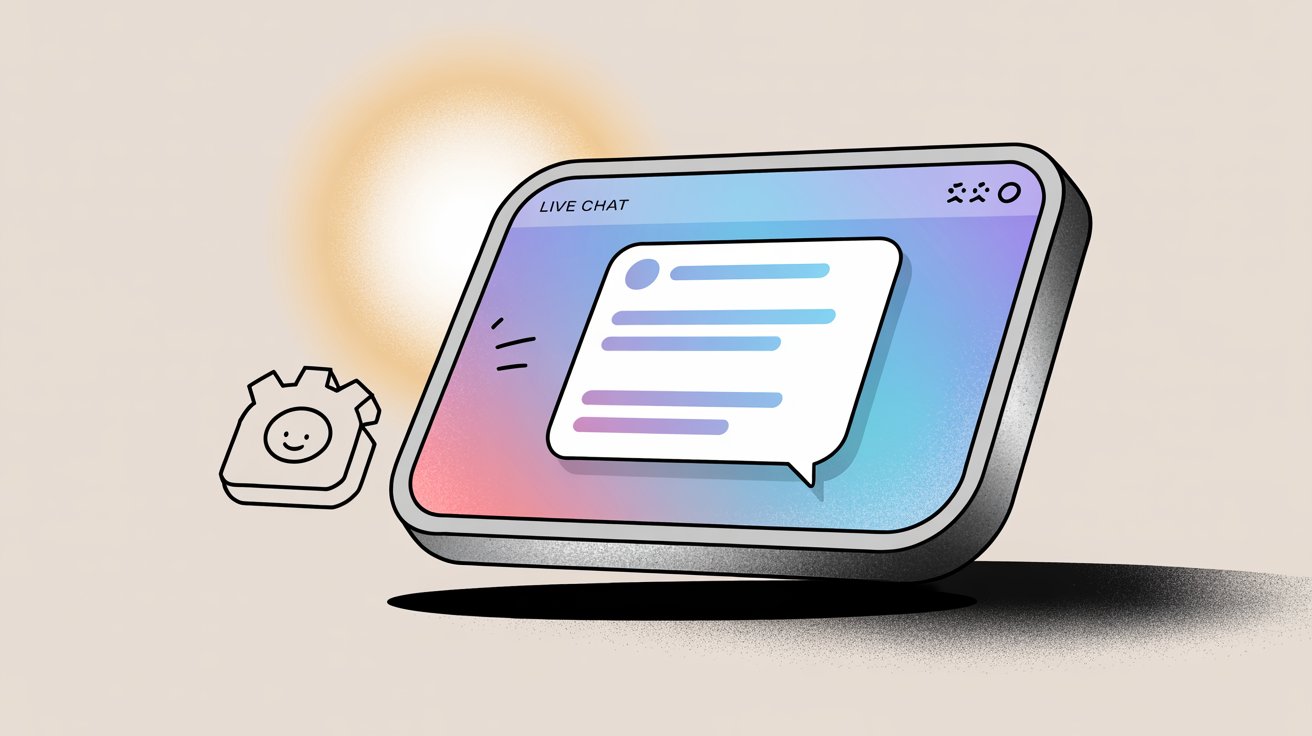
The interface is fast and agent-friendly. After years of refinement, the experience just works smoothly.
Integrations are extensive. LiveChat connects with over 200 third-party apps including major CRMs (Salesforce, HubSpot), e-commerce platforms, analytics tools, and more. If you have a specific integration requirement, chances are LiveChat supports it.
It focuses on doing one thing exceptionally well. Unlike Freshchat's attempt at omnichannel messaging, LiveChat specializes in website and in-app chat. This singular focus means the chat experience itself is optimized and reliable.
The Pricing Structure
LiveChat charges per agent with tiered plans:
| Plan | Price/Agent/Month | Key Features |
|---|---|---|
| Starter | $16 (annual) | Basic features, limited chat history |
| Team | $33 | Unlocks most SMB needs |
| Business | $50 | Advanced features, better history |
| Enterprise | $149 | Full feature set, dedicated support |
The Starter plan is affordable for small teams, though it has limited chat history and basic features. The Team plan unlocks most of what SMBs need. All plans allow unlimited chats.
When LiveChat Makes Sense
Choose LiveChat if:
-
You want a stable, time-tested chat solution without needing a full helpdesk platform
-
You're a mid-sized business or even large enterprise needing reliability
-
You value polish and extensive integration options
Companies like Sephora have used LiveChat to bring their in-store consultation experience online, using it for product advice via chat. The polish and integration options make it work well for professional support operations.
Don't choose LiveChat if:
-
You need cutting-edge automation features
-
You need an all-in-one system that includes ticketing, voice support, and advanced bot flows
-
You want something beyond straightforward (some might say "old-school") simplicity
LiveAgent: Best Budget Freshchat Alternative with Multi-Channel Support
If you want live chat plus ticketing plus voice calling without spending Zendesk money, LiveAgent deserves serious consideration. It's an all-in-one help desk platform built for small and mid-size businesses.
What LiveAgent Includes
Multiple support channels under one roof. LiveAgent combines a ticketing system for emails, a call center module, social media integrations, and a live chat widget. For companies that don't want to pay for separate chat, helpdesk, and phone solutions, this unified approach makes sense.
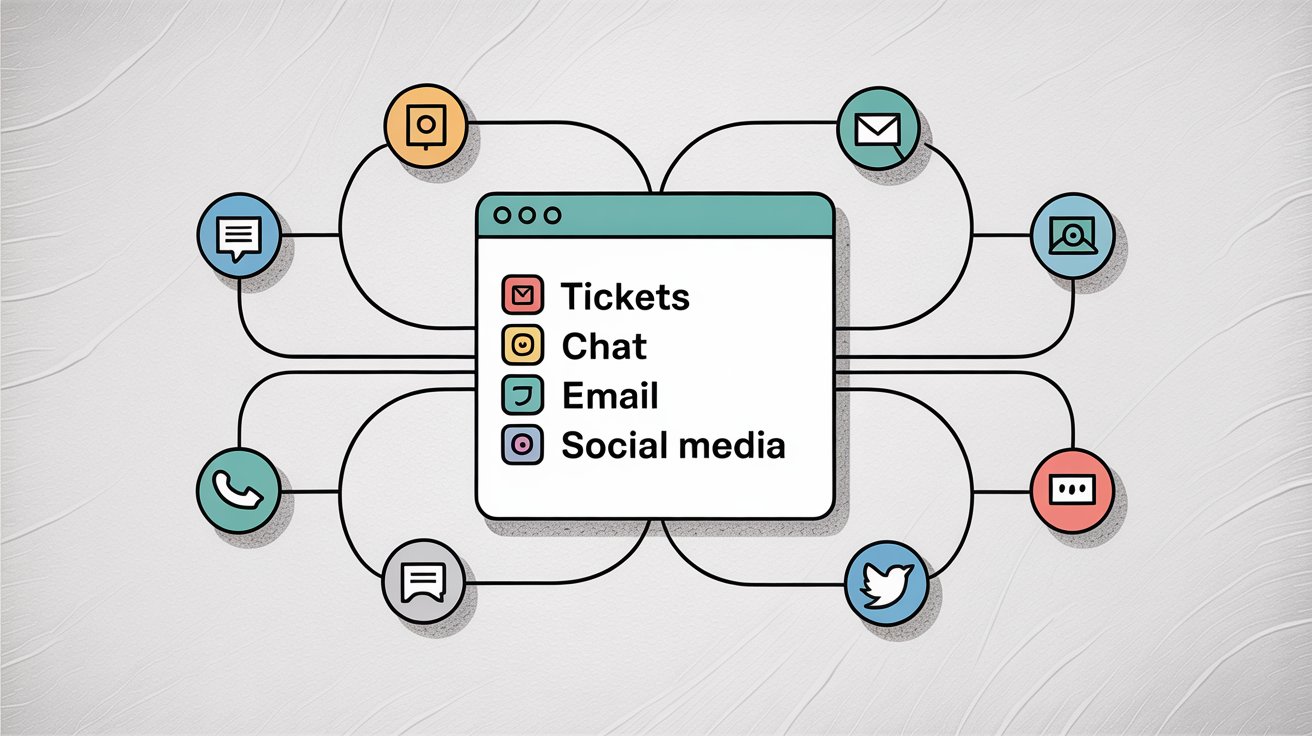
Freshchat handles messaging; you'd need Freshdesk for tickets and additional tools for voice. LiveAgent bundles it all.
The chat features are comprehensive. You get chat invitation rules (trigger proactive chats based on time on page), real-time typing view, visitor tracking to see page history, and advanced routing to ensure queries reach the right department. These capabilities match Freshchat's chat functionality while being tied directly into ticketing.
Knowledge base and collaboration tools included. LiveAgent lets you build FAQs for self-service and provides a customer portal. Agents can leave internal notes on tickets and chats to help coordinate. These features reduce duplicate responses and improve team efficiency.
The Pricing Advantage
LiveAgent is remarkably affordable:
| Plan | Price/Agent/Month | What You Get |
|---|---|---|
| Free | $0 | Very limited (1 chat button, 1 email) – mainly for evaluation |
| Ticket | $15 | Email ticketing only |
| Ticket + Chat | $29 | Both tickets and live chat |
| All-Inclusive | $49 | Adds call center and social channels |
That $29/agent plan gives you both email ticketing and live chat. Compare that to paying separately for Freshdesk tickets and Freshchat. The $49 All-Inclusive plan adds phone support, making it far less expensive than comparable enterprise suites.
The Trade-offs
LiveAgent does a lot, which can make the interface feel overwhelming at first. Some users report it's not as visually modern as Freshchat or newer competitors. The mobile apps have rough edges (particularly Android).
But the company updates frequently and offers 24/7 support, which helps offset these concerns.
When LiveAgent Makes Sense
Choose LiveAgent if:
-
You're a small or mid-size business needing unified customer support on a tight budget
-
You handle moderate inquiry volumes across different channels: emails, chats, Facebook messages, calls
-
You want to manage your entire support operation through one system without needing multiple tools
A small e-commerce business could manage their entire support operation through LiveAgent without needing multiple tools. It's also a good stepping stone if enterprise systems like Zendesk feel too expensive.
Don't choose LiveAgent if:
-
You only care about live chat and already have other systems for email or calls (you'd be paying for modules you don't need)
-
Visual polish and modern UI are priorities (you might prefer sleeker alternatives)
Crisp: Modern Freshchat Alternative with Video Calling Built-In
Crisp positions itself as more than just live chat. It's a customer messaging platform that includes live chat, multi-channel messaging, and even built-in audio and video chat capabilities.
What Makes Crisp Stand Out
Rich interaction options beyond text. Crisp supports audio and video calls directly in the chat widget, plus screen sharing and co-browsing functionality. This is valuable for tech support or sales demos: agents can escalate a chat to a quick call or guide users through the website in real time.

Freshchat doesn't natively offer voice or video in the widget. You'd need integrations or separate tools.
Multi-channel by design. Connect Facebook Messenger, Telegram, email, WhatsApp (via Twilio), Instagram DMs, even Twitter DMs and SMS. All conversations flow into one inbox, similar to Freshchat's unified approach but in a lighter, more plug-and-play package for small teams.
The chatbot system handles guided flows. Crisp's bots (included in higher plans) work well for FAQ automation and guided conversations. They're not as sophisticated as Intercom's Fin at understanding free-form questions, but they handle structured flows effectively. Crisp also offers "Magic Browse" where you can see what users are looking at (with permission) and auto-translation for messages.
The Flat-Rate Pricing Model
Crisp's pricing is straightforward and incredibly compelling:
| Plan | Price/Month | Agents | Key Features |
|---|---|---|---|
| Free | $0 | 2 agents | Basic chat |
| Pro | $25 (per workspace, annual) | 4 seats | Core features |
| Unlimited | $95 (per workspace, annual) | Unlimited | Audio/video, automated triggers, unlimited history |
Those prices are for the whole account when billed annually. The $95/month Unlimited plan for unlimited agents with audio/video chat, automated triggers, and unlimited chat history is remarkably affordable. Compare that to Freshchat with 10+ agents where you'd easily spend several hundred dollars monthly.
For growing startups or teams that need many people on chat (or 24/7 coverage across time zones), this flat pricing structure can save thousands annually.
Things to Consider
Crisp is newer (founded mid-2010s), so while feature-rich, support and documentation can occasionally lag behind more established players. Advanced features like removing Crisp branding or sophisticated chatbot scenarios require the higher plan.
Some minor workflow quirks exist, like not being able to mark a chat as unread after viewing it. Small issues, but worth noting depending on your team's needs.
When Crisp Makes Sense
Choose Crisp if:
-
You're a startup, tech company, or customer-centric team wanting engaging chat experiences (with built-in video calls and co-browsing) without enterprise complexity
-
The flat unlimited-agent pricing is particularly appealing for larger teams or 24/7 support operations
-
You need mobile app SDK integration (Crisp provides one to embed chat in your own app)
-
You value modern UI and forward-thinking features
Don't choose Crisp if:
-
You require the absolute best AI natural language bots
-
You need deeply integrated helpdesk features
-
You're looking for enterprise scale (it's evolving rapidly but isn't quite at the enterprise scale of platforms like Zendesk or Intercom)
Tawk.to: Completely Free Freshchat Alternative
If budget is your primary constraint, Tawk.to offers something remarkable: completely free live chat software with no monthly fees.
What You Get for Free
Actually unlimited at zero cost. Tawk.to provides a full-featured chat widget and agent console for $0. Unlimited chats. Unlimited agents. Indefinite chat history storage. This isn't a limited trial. The core service is genuinely free.
They monetize by offering an optional $19/month to remove their small branding, plus services where they provide hireable live agents. But using the software itself costs nothing.
Solid features despite being free. You get chat customization, canned shortcuts, file transfers, and even a knowledge base for FAQs. Tawk.to recently introduced automated translation in 45+ languages, which is great for international businesses. It supports group messaging (multiple agents in one chat) and department routing.
Mobile apps are available for responding on the go. It covers the fundamental capabilities needed for live customer chat.
Security is still taken seriously. Tawk.to provides 128-bit SSL encryption for chats and features like IP banning for abusive visitors. The company emphasizes they don't sell data, though you should read their privacy terms carefully as with any free service.
The Limitations
The main catches: there's "Powered by Tawk.to" branding on your widget (unless you pay the $19/month to remove it), and integrations are more limited than paid competitors. It's not as extensible with CRM systems or other tools as Freshchat.
There's no built-in AI chatbot (though you can use their API to connect one). Multi-channel support is minimal. The interface is functional but not as slick as paid tools, and some users find the settings have a learning curve.
When Tawk.to Makes Sense
Choose Tawk.to if:
-
Cost is the deciding factor and you need reliable, basic live chat
-
You're a small startup, personal website, nonprofit, or small e-commerce site operating on thin margins
-
You want to test live chat viability before investing in paid solutions
You can always start with Tawk.to to gauge your chat volume and upgrade to a paid solution later if needed. Even the $19/month white-label option is far cheaper than almost any alternative.
Don't choose Tawk.to if:
-
You need sophisticated integrations, native AI chatbots, or are running a large enterprise operation
-
Advanced automation is critical (it's not trying to be a full Freshchat equivalent)
Help Scout: Best Freshchat Alternative for Email-First Support Teams
Help Scout takes a different angle. It's primarily a help desk platform for email support that also includes live chat through its Beacon widget. We're including it because businesses looking at Freshchat might actually need a simpler unified solution for both email and chat.
How Help Scout Approaches Support
Email and live chat work together seamlessly. Help Scout's foundation is a shared email inbox for support teams with strong collaboration features. The Beacon widget can serve as live chat, a contact form, or a knowledge base portal on your website.
Customers can search your FAQs, send a message (which enters your email queue), or live chat with an agent if available. All through the same Beacon interface. This unified approach contrasts with Freshchat (mainly chat) plus Freshdesk (separate email ticketing).
Keeping support personal is core philosophy. The interface is notably clean and easy to use. Reviews frequently highlight that Help Scout feels "delightful" for end-users. It may lack some complex routing rules or automations of Freshchat or Zendesk, but that's partly intentional. It's geared toward teams that want to deliver friendly support without heavy IT administration.
Integrations are thoughtful. Help Scout connects with CRMs (Salesforce, HubSpot), e-commerce platforms, and more. Notably, it has strong Stripe integration: you can see billing info and even process refunds right from a customer's profile. There's also an open API for custom development.
Knowledge base included. Help Scout provides a Docs product for creating a branded help center. The Beacon widget surfaces relevant articles automatically. If someone types "Where is my order?", it might suggest your shipping FAQ. Freshchat can integrate with external knowledge bases, but Help Scout includes one out-of-the-box.
The Pricing
Help Scout charges per user starting at $20/agent/month (Standard plan) with higher tiers for advanced features. All plans include Beacon live chat and knowledge base functionality.
There's no free tier beyond a trial, but pricing is straightforward. A team of 5 agents might pay $100/month, which covers both email and live chat. Compare that to paying separately for Freshdesk plus Freshchat, which could easily cost more.
When Help Scout Makes Sense
Choose Help Scout if:
-
Your customer support is primarily email and self-service, but you also want to offer live chat in an integrated way
-
You're a small business or SaaS company that prides itself on personal customer service
For example, a small software company can answer customer emails through Help Scout, and when users visit the website, Beacon either provides instant answers from docs or connects to an agent. All logs go into one system.
Don't choose Help Scout if:
-
You need AI bots, social media messaging, or voice support
-
You separate your live chat team from your email team organizationally (a more specialized tool might fit better)
But for teams that want simplicity, integration, and friendly support experiences, Help Scout hits a sweet spot that makes it a worthy Freshchat alternative.
How to Choose the Right Freshchat Alternative for Your Business
With 10 solid options on the table, let's make this practical.
Match Your Primary Need
If you want cutting-edge AI and automation (and have budget to invest):
→ Intercom delivers the most sophisticated bots and conversational AI available.
If you need a complete support suite (tickets, calls, and chat all unified):
→ Zendesk for enterprise scale
→ LiveAgent for budget-friendly multi-channel support
If your team lives in Slack or Microsoft Teams:
→ Social Intents offers native integration that keeps agents in their existing workflow, plus unlimited agents on all plans.
If you run an e-commerce business (or just need something simple and affordable):
→ Tidio and Crisp both offer AI chatbots, multi-channel messaging, and small-business-friendly pricing.
If sales and lead generation are the goal:
→ Drift brings marketing firepower with ABM, meeting scheduling, and conversational sales tools that Freshchat lacks.
If you're extremely budget-conscious:
→ Tawk.to can't be beaten (it's free)
→ Help Scout offers good value by combining email and chat support

Ask These Questions
Do you primarily need live chat, or a broader helpdesk? This alone eliminates several options. Specialized chat tools versus all-in-one platforms serve different needs.
How important are AI chatbot capabilities? If critical, focus on Intercom, Drift, or platforms with strong AI like Social Intents' ChatGPT integration. If basic automation is enough, most alternatives will work.
What's your agent count and budget? Run the numbers. Per-agent pricing versus conversation-based pricing can swing dramatically depending on your team size. Social Intents' unlimited agents might save thousands if you have a large or fluctuating team.
Do you live in Slack, Teams, or prefer standalone tools? This workflow preference matters more than most people initially realize. Integration friction compounds daily. If you work in Slack or Teams, consider tools built for those platforms.
What's your chat volume? High-traffic sites need to ensure conversation limits (if any) align with reality.
The Testing Phase
Most of these platforms offer free trials or free tiers. Actually test 2-3 finalists with your team. Have agents try responding to real customer queries. Check if the workflow feels natural or forced.
Watch for:
-
How fast can agents respond?
-
Is the mobile experience good enough?
-
Do integrations with your CRM/tools actually work smoothly?
-
Is the reporting adequate for your needs?
-
Does the pricing make sense as you project growth?
The great news? The customer support software market in 2025 is full of strong options. Whatever frustration led you to seek a Freshchat alternative, there's likely a platform built specifically to solve that problem.
How to Get Started with Social Intents
If you're already using Slack or Microsoft Teams for team communication, Social Intents offers a uniquely compelling approach: your team keeps working where they're comfortable while delivering exceptional customer chat experiences.
Why Teams Choose Social Intents
Zero learning curve. Your agents don't need training on new software. Chats appear in Slack or Teams. They respond like they're messaging a colleague. That's it. For teams that have spent weeks trying to get agents to consistently check a separate chat console, this elimination of friction is transformative.

Unlimited agents unlock flexibility. With conversation-based pricing instead of per-seat charges, you can include your entire team without worrying about cost per head. Part-time agents? Seasonal support increases? Rotating team members? Everyone can participate without budget impact.
AI chatbots work alongside humans seamlessly. Train chatbots on your content, let them handle routine questions, then escalate to humans in Slack or Teams when needed. You get automation without losing the personal touch.
Setup is genuinely quick. Native integrations with Shopify, BigCommerce, Wix, and WordPress mean you can have professional live chat running on your site within an afternoon, not weeks of implementation.
Getting Started
Social Intents offers a 14-day free trial so you can test the Slack/Teams integration with your team before committing. Most teams know within a few days if the workflow fits their needs.
Plans start at $39/month (Starter), with the popular Basic plan at $69/month including unlimited agents. Business plan ($199/month) adds real-time translation and higher conversation limits.
Try Social Intents free for 14 days and see if keeping your agents in Slack or Teams while delivering excellent customer chat makes sense for your team.
Common Questions About Switching from Freshchat
What's the main difference between Freshchat and its alternatives?
The biggest differences typically fall into three areas: pricing models (per-agent versus conversation-based), integration depth (especially with existing tools like Slack or Teams), and feature focus (pure chat versus broader helpdesk capabilities).
Some alternatives like Social Intents specialize in native Slack/Teams integration with unlimited agents. Others like Zendesk and LiveAgent bundle chat with ticketing and voice support. The right alternative depends on which gaps you're experiencing with Freshchat.
Can I switch from Freshchat without losing chat history?
Most platforms allow you to export chat transcripts from Freshchat (check their documentation for current export options). But migrating historical conversations into a new platform's database varies by tool. Some alternatives offer import capabilities or can integrate with data warehouses for historical reporting.
The most important consideration is ensuring your knowledge base and contact data migrate cleanly, as that impacts ongoing support quality more than old chat logs.
Which Freshchat alternative is best for small businesses on a budget?
Tawk.to is genuinely free with unlimited chats and agents, making it the most budget-friendly option. Tidio offers a generous free plan and low-cost paid tiers. Social Intents starts at $39/month and becomes very cost-effective if you have multiple agents (since it's not per-seat pricing). LiveAgent also delivers excellent value with its $29/agent/month Ticket+Chat plan.
The best choice depends on whether you need just chat (Tawk.to or Tidio) or chat plus other channels (LiveAgent).
Do these alternatives work with Shopify and WooCommerce?
Yes, most modern chat platforms integrate with major e-commerce platforms. Social Intents, Tidio, LiveChat, and Crisp all offer Shopify apps.
For WooCommerce, you'll find WordPress plugins available for most alternatives including Social Intents, Tidio, LiveAgent, and Tawk.to. The integration depth varies: some are native apps with order lookup capabilities, while others are chat widgets that embed on your store pages.
Can I use AI chatbots with these Freshchat alternatives?
Absolutely. Intercom has the most advanced AI with Fin. Drift offers sophisticated bots for sales qualification. Social Intents integrates with ChatGPT, Claude, and Google's Gemini AI models for automated responses with human handoff.
Tidio and Crisp include visual chatbot builders. Even Zendesk and LiveAgent offer bot functionality in their higher plans. Only Tawk.to and LiveChat don't include native AI bots (though both have APIs for custom integrations).
Is it difficult to train my team on a new live chat platform?
This depends entirely on which alternative you choose. Tools like Social Intents require virtually no training because agents work from Slack or Teams (which they already know).
Simple platforms like Tidio or Crisp have intuitive interfaces that teams pick up quickly. More complex systems like Zendesk or Intercom have steeper learning curves and might require dedicated training sessions, but they also provide more sophisticated capabilities once learned.
Which alternative handles multiple languages and international customers best?
Tawk.to offers automated translation in 45+ languages completely free. Social Intents includes real-time auto-translation in the Business plan. Crisp provides auto-translation features as well. Zendesk has strong multi-language support with localized help centers. LiveAgent supports multilingual content and routing.
If international support is critical, look for platforms explicitly mentioning real-time translation capabilities, not just multi-language interfaces.
How do I know if conversation-based pricing is better than per-agent pricing?
Do the math with your specific numbers. If you have many agents but moderate chat volume, conversation-based pricing (like Social Intents, Tidio, Crisp) typically saves money.

Example: 10 agents at $20/agent = $200/month. But if you only handle 1,000 chats monthly, a conversation-based plan charging $69/month (unlimited agents) is far cheaper.
Conversely, if you have very few agents but extremely high chat volume, per-agent pricing might work better. Calculate your agent count times per-seat cost, then compare to conversation-based plans at your monthly volume.

